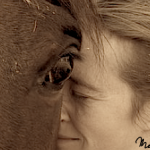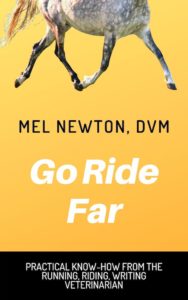Ben and Jerry’s is not single serve and other observations
| February 16, 2011 | Posted by Melinda under Uncategorized |
I have a ton of half-formed posts and topic floating around, and I think since life is marching onward at an alarming pace, the probability of me doing justice to these topics is rather slim. So, I’m going to do one of those random posts where I talk about a lot of different things, while still managing to talk about nothing.
1. Your first clue that Ben and Jerry’s is not a single serving should be that it doesn’t come with a spoon, like the very cute (and oh so small) “single serve” cartons. I’m pretty sure attempting to eat Ben and Jerry’s with your fingers while driving down the interstate constitutes distracted driving.
2. It’s important to have more good days than bad days. Stress, frustration, and bad things are going to happen, but if that starts to be the “norm”, that’s a good indication that I need to step back and reevaluate. I’m happy to report a plethora of enjoyable days recently.
3. The cookbook I finally admitted to loving a couple posts back (Eat this, not that! 350 calorie meals)– yes the title is corny, but it’s really working. After trying to curb a fast food habit for more than a year, after using this cookbook for a month I have gotten to the point where fast food doesn’t appeal anymore. The other night I was REALLY hungry, and it was late. I gave myself permission to eat fast food and was shocked to find out that NOTHING appealed to me. I ended up going to the grocery store and fixing something really fabulous for dinner instead. Victory! I’m eating lots of veggies and protein and very little gluten and carbs. I feel great.
4. The definition of dressage could be: do the opposite of what makes sense. Turn with your outside rein, push the reins (no pulling), the horse develops lightness and self carriage through being heavy at first.
5. My days alternate with me feeling very fragile, and feeling incredibly strong and capable.
6. I’m getting a hankering to look at Farley’s working HR again. I posted earlier that although I’ve used them in the past, I don’t ride with a HR monitor any more. I think I’m more curious than anything else – I don’t really need it for training or rides because I’m not racing and, at least in the past, I was really good at reading Farley. But I’m curious…..I can modify a human HRM to work on a horse, so it’s probably time to start keeping an eye out for a sale – I can usually find one for under $50 that will work.
7. I’ve almost sold enough tack to pay for my school commuter car!
8. I have a new strategy for eating at my next 100. Eat real food as long as I can, and then when I start not being to get anything down, switch to Gu’s and Gels until I can eat real food again. It’s not ideal, but better than getting sicker and sicker because my body is screaming for calories but can’t handle anything real. I’m finding that the new formulations of the gel’s are better than when I running marathons almost 10 years ago – they are softer on the stomach and not nearly as “sharp” in their sugar spikes. Yep, it completely contradicts how I’m trying to manage my nutrition in my every day life, but I’m so tired of spending the hours after a 100 puking.
9. Anyone see Stagg Newman’s EN Nov 2010 article on the longevity of endurance horses? I found is article well thought out and inspiring. AERC published an outline in the endurance section of the website on key factors in successful long-term endurance horses. The longer I do this sport, the more I appreciate the dedication, commitment, knowledge, and yes-luck, that it takes to do this sport on the same horse year after year, ride after ride, successfully. Some of the key points from Stagg Newman I found especially relevant (with my own thoughts in parantheses):
a. Horse history may be the most important part of the prepurchase exam. (I totally agree – I care more about how the horse grew up, what it’s been fed, and it’s riding history, then I do bloodlines, genetics, and xrays. Those things are still important but not number one of my list).
b. Distance before speed. (I haven’t “made” enough endurance horses to have a valid opinion on this….BUT my gut so far is that distance is so much more important. I don’t think it’s necessary to do fast 50’s before graduating to 100’s. I think it’s important to be able to finish a 50 strongly, and I feel it’s important to get to your goal distance as fast as possible. Then go back and add speed if you want)
c. Dollars spent on early prevention pay great dividend (no kidding…..).
d. Horses for courses, conditioning for what you will do.
e. Two principle causes of lameness in horse are rider on back and farrier who does the feet. (The rider part of this equation will become especially apparent if you do dressage and jumping – talk about humbling. It can take more miles for it to show up in an endurance horse and it’s easier to be in denial than if you are cross training in a different discipline under the watchful eye of a qualified trainer).
f. Long-term goals, carefully planned seasons, modification as necessary. Select course consistent with your long-term goals and your training. Mountain horses cannot readily go fast in sand and vice versa. (Farley is a mountain horse. Every time she’s come up slightly off after a ride it’s because I went too fast on a desert ride. Also – choosing of the rides – totally agree. I won’t do American river again – not because Farley can’t do it, but because I feel like it’s too hard and I don’t want to risk our long term goal. In the same vein, I may do Tevis every other year, but at least for now, doing it every year is too hard on both of us – and would increase our chances of both mental and physical burnout).
g. Never take the horse too close to its maximum potential.
h. Ride fitness – a tired rider makes a tired horse. And a tired rider makes career-limiting mistakes.
If you want to read more on this, I encourage you to do to the AERC website and browse their educational section.
10. Ride your horse 364 days in a way that will allow her to compensate/take care of you on the 365th day, when you really screw up.
11. Tips to save money – cut up all the product magazines. Don’t even look at them. Unsubscribe from all mailings that are trying to sell you something. Get into a cash habit. Don’t pay full price for anything.
I think that catches me up on pending topics!











I definitely agree with ‘distance before speed.’ My husband has gotten some very good advice from riders who have many miles under their belts. He has chosen to ride slow…think middle of the pack…and do multi-day rides. Our horses have become so much more fit because of it. He feels this was a big contributing factor in his Tevis finish.
snap, that is a ton of thinking!!! I LOVE your dressage dissection b/c I find it SO true!
As for the food, I have been trying so so so hard to not eat out, but I find myself craving it! I am really lazy when it comes to anything not horse related (school, working out…school), so lately I’ve tried to change my way of thinking to ‘lose weight for my horse and fitting into my show boots again’ and its working. But seriously I wish I could eat like you, props!
As for the tack, NICE. That is a good chunk of change 🙂
I second the baby food advice. I’m also a big fan of chocolate flavored power bars, but they’re not for everyone.
Congrats on selling the tack.
Agreed on distance over speed.
Mel: regarding your food on 100’s, consider packing a few containers of babyfood–which is real food squished up nicely. Might be easier to digest, and keep you on track a little longer. Gu and things like it make me sick faster than anything else. My go-to food for hot rides is a banana; I just wish they travelled better!